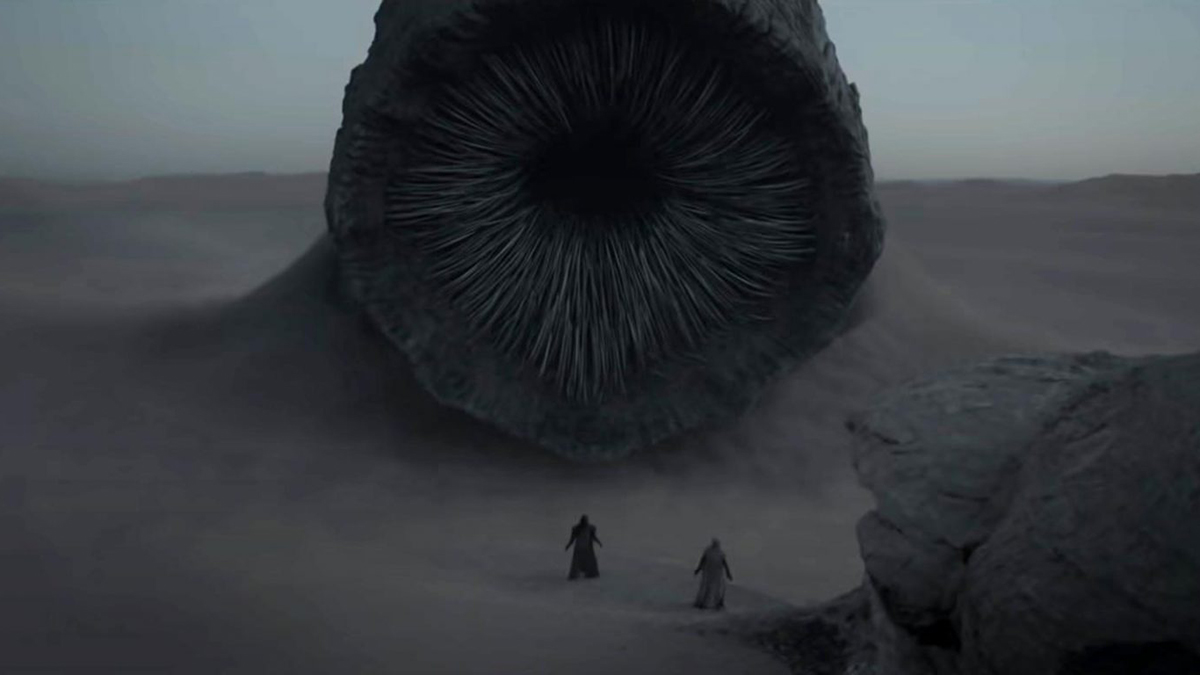There are some movies that simply must be seen on the big screen at least once. That goes in spades for Denis Villeneuve’s Dune.
Everything about Dune is… big. From Australian Greig Fraser’s magnificent IMAX cinematography, to the overwhelming scale of its set pieces, to Hans Zimmer’s grandiose soundtrack, Dune is an exercise in the sort of monumental cinema associated with epics like Lawrence of Arabia or The Lord of the Rings. To watch Dune on the big screen is to be constantly awed by its sheer enormousness.
But, is it a good movie?
As a standalone film, Dune would have to be judged as a flawed, incomplete epic. It is, though, just the first part of a two-film saga and once the second half is released, it will almost certainly be seen as the opening act of one of the great, operatic masterpieces of cinema. After all, Das Rheingold is often regarded as a somewhat lesser work in its own right (very wrongly, in my opinion), but forms an essential part of the grand saga of the Der Ring des Nibelungen.
The other big question is, can non-fans even understand the story? Dune is famous for the depth of its world-building and the complexity of its backstory, just one reason why the novel has so long been regarded as “unfilmable” — but then, the same was long said of The Lord of the Rings. However, the consensus of the non-book-readers I saw the movie with was that it was generally pretty easy to follow.
To recap the story briefly and without spoilers: 8,000 years in the future, the galaxy is ruled by an empire which combines futuristic, space-faring technology and a feudal society of (often bloodily) competing noble houses and Byzantine religious politics. Space travel is only possible because of an exotic drug named “Spice”, which enables prescience and other psychic effects, as well as extending life. Spice is only found in one place in the universe: the desert world of Arrakis.
As the story opens, the noble House Atreides has been directed by the Emperor to take control of Arrakis (and its spice), over House Harkonnen, with whom the Atreides have been feuding for generations. Into this volatile political power-play comes Paul Atreides, the Duke’s only son and heir, and also the heir to centuries of secretive selective breeding by the shadowy Bene Gesserit sisterhood.
Thus ensues a Games of Thrones-style cascade of betrayals, prophecies, bloodshed and galactic ambition.
The casting of Dune is near-perfect: from Timothée Chalamet as Paul and Oscar Isaacs as his father Duke Leto, to their bitter enemies: Dave Bautista as “Beast” Rabban Harkonnen and Stellan Skarsgard as the repellent Baron Harkonnen. Josh Brolin is an excellent choice as Gurney Halleck, the wryly humorous warrior-balladeer, as is Xavier Bardem as the tough, enegmatic desert leader, Stilgar. Jason Mamoa’s bro-persona sits comfortably with the role of Duncan Idaho. On the other hand, Zendaya, running the full gamut of her range, from smug to condescending, is mercifully minimal on-screen (sadly, that will necessarily change in Part 2).
But the true star of Dune is its cinematography. The film is a visual feast, from the colossal sets and gorgeous costumes, to the starkly-contrasting landscapes of the Atreides’ stormy homeworld, Caladan, the sinister industrial Harkonnen planet Geidi Prime (a veritable “dark, Satanic mill”) and, of course, the magnificent desertscape of Arrakis. Not since Lawrence of Arabia has the desert landscape been such a star in its own right.
Another aspect of Dune the novel that has hampered its transition screen is that so much of it is unspoken. Large chunks of dialogue are written as the characters’ inner monologues. At the same time, a great deal of action happens “off-screen”: for instance, the climactic battle is written mostly as the leader sitting in his command bunker, receiving periodic updates.
Fortunately, Villeneuve has overcome these problems without resorting to previous film-maker David Lynch’s technique of having the characters’ literally whisper their inner thoughts in overdub while glancing meaningfully at each other.
YouTube critic The Critical Drinker’s main criticism (while he overall loved the film) is that the story relies so heavily on predestination, leaving the characters as so many puppets without agency of their own. But that’s actually a great deal of the point of the story: the characters are the unwilling pieces of Byzantine plots centuries in the making by shadowy forces. Duke Leto walks wide-eyed into what he knows is the trap of Arrakis. Paul’s great struggle is against the destiny laid out for him before he was even born: the spice opens his prescience to a labyrinth of possible futures, all of which fill him with dismay. Paul’s challenge is to try and influence events around him to achieve the least-worst possibility.
As has also been remarked, the film ends abruptly and rather oddly, with Paul and a collection of other characters walking off into the desert. On its own, yes, this seems an odd ending. But, like The Fellowship of the Ring, which ends with Frodo and Sam wandering off into the bleak hills alone, the ending of Dune (part one) will be eventually be seen as the curtain-raiser to a more fulfilling epic story.
I’ve always been ambivalent about Dune’s status as “greatest science fiction novel”, but I have little doubt that Dune the movies will in time be seen as one of the masterpieces of cinema. Like Villeneuve’s previous film, Blade Runner 2049, it’s a slow-burn, visual tour de force that’s rarely less than utterly compelling.
Just see it on the big screen while you can.
Please share this article so that others can discover The BFD

